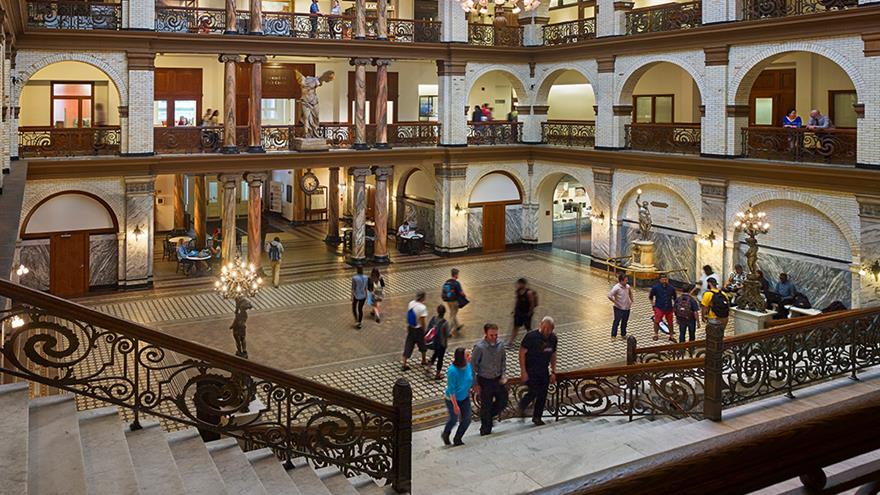Learning Priorities At Center of Drexel Students' Education

Anyone waiting for an elevator on the first floor of the Hagerty Library has likely stared at what’s on the outside of the door: a blue icon with two speech bubbles and the word “Communication.”
That’s no empty buzzword: It’s one of the 12 Drexel Student Learning Priorities, the set of educational goals that should be at the center of every Drexel student’s experience according to the University’s strategic plan.
“Every student that graduates should be competent in these areas and, we hope, be aware of their significance in Drexel’s academic programming,” said Senior Vice Provost for Academic Affairs John DiNardo.
To support this effort, the Office of the Provost has organized a rotating series of monthly events, each dedicated to one of the Drexel Student Learning Priorities (DSLPs).
Each of the year’s 12 months provides an opportunity to focus on one of the DSLPs. At each event, students can enjoy refreshments and take part in a presentation by a faculty or staff member on some part of that month’s learning priority. Each 90-minute workshop may involve group activities, a question-and-answer session or a short presentation, but it won’t be a classroom-style lecture.
“We want to keep students engaged,” said Iuliana Balascuta, director of operations in the Office of Academic Affairs. “We don’t want to lecture to students, so we try to make the events as interactive as possible.”
At the most recent event, in October, students learned about evidence-based arguments, reflective analyses and assembling writing portfolios to align with the Communication priority. Upcoming events in November and December will focus on Responsible Citizenship and Ethical Reasoning.
The main idea, Balascuta said, is for the monthly events to create awareness of the DSLPs as well as complement the efforts that take place in the academic programs.
The 12 DSLPs are divided among “intellectual and practical skill areas” (Communication, Creative and Critical Thinking, Ethical Reasoning, Information Literacy, Self-Directed Learning, Technology Use), five “experiential and applied learning areas” (Global Competence, Leadership, Professional Practice, Research Scholarship and Creative Expression, Responsible Citizenship) and a personalized goal called Build Your Future.
If students attend 6 of the 12 events in a given academic year, they receive a certificate that they can add to their resume or portfolio. And if they make it to all 12, they receive a DSLP award at an end-of-year reception.
DiNardo said he’d like to see more faculty members take part, maybe using the opportunity to promote courses they’ll be offering in the future. And he hopes that the events and the learning priorities will become a more visible part of the student experience at Drexel. That’s why each month’s featured goal appears on the doors of that elevator in Hagerty.
For more details about the DSLP events or to volunteer to become a DSLP presenter, contact Iuliana Balascuta at dslp@drexel.edu.
In This Article
Drexel News is produced by
University Marketing and Communications.

